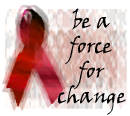|
Recognizing Domestic Abuse
Could you be in an abusive relationship? Use the checklist and information below if you have doubts.
(Information provided by Nashville Tennessee Metropolitan Police Department)
HAS ANY OF THE FOLLOWING EVER HAPPENED TO YOU?
Does your partner:
· Blame everyone else
especially you, for his or her mistakes?
Yes___ No___
·Prevent you from seeing your family or friends?
Yes___ No___
·Curse you, say mean things, mock you or humiliate you?
Yes___ No___
· Force you to have sex
or force you to engage in sex that makes you feel uncomfortable?
Yes___ No___
Restrain, hit, punch,
slap, or kick you?
Yes___ No___
· Intimidate or threaten
you?
Yes___ No___
Ever prevent you
from leaving the house, getting a job, or continuing your education?
Yes___ No___
If you answered "yes" to any of these questions, you may be in an abusive relationship. The
Domestic Violence Division of your Police Department can assist you in obtaining warrants, orders of protection and counseling.
Symptoms of Abuse - Threats; Power Misuse;
and Control
What symptoms below fit your life?
|
Using Emotional Abuse
· Putting
the other person down
· Making the other
person feel bad about themselves
·
Calling the other person names
· Making the
other person think they are crazy
· Playing mind games
· Humiliating the
other person
· Making the other
person feel guilty |
Using Privileges
· Treating the other
person like a servant
· Making all the
big decisions
· Acting like the
master of the castle
· Being the one who
determines the roles |
|
Using Economic Abuse
· Preventing
the other person from getting or keeping a job
· Making the other
person ask for money
· Giving the other
person an allowance
· Taking the other
person's money
· Not letting the
other person know about or have access to family income |
Using Coercion and Threats
· Making or carrying
out threats to do something to hurt the other person
· Threatening to
leave the other person, to commit suicide, report the other person to welfare
· Making the other
person drop charges
· Making the other person
do illegal things |
|
Using Intimidation
· Making the other
person afraid by using looks, gestures, or actions
· Smashing things
· Abusing pets
· Displaying weapons
|
Using Children
· Making the other
person feel guilty about the children
· Using the children
to relay messages
· Using visitation
to harass the other person
· Threatening to
take the children away |
|
Using Isolation
· Controlling what
the other person does, who they see and talk to, what's read, and where they go
· Limiting their
outside involvement
· Using jealousy
to justify actions |
Minimizing, Denying, Blaming
· Making light of
the abuse and not taking the other person's concerns about it seriously
· Saying the abuse
never happened
· Shifting responsibility
for abusive behavior
· Saying the other
person caused it |
Rape Trauma Syndrome: Recognition and Treatment
Most people are familiar with the term "Post Traumatic
Stress Disorder." It sometimes affects combat veterans or people who have lived
through torture or natural disasters. Characterized by vivid flashbacks, PTSD
can be crippling to its victims, increasing the emotional damage that first brought on the disorder. What most people don't know is that survivors of rape or sexual abuse often suffer from PTSD, or one of
its sub-categories, Rape Trauma Syndrome (RTS).
Survivors
of rape or sexual abuse need to be aware of the possibility of developing RTS. Flashbacks
can occur at any time, and along with the inherent mental hazards, they can pose real physical danger if they happen while
a survivor is driving or performing other high-concentration tasks. Flashbacks
seem to put the survivor back in the moment when the trauma actually happened, and are often triggered by outside influences. Smells, sounds, verbal or written accounts of rape or abuse, or movies characterizing
rape can be triggering to survivors.
There is no known cure for Rape Trauma Syndrome, but it can be treated. Survivors can also exercise control over flashbacks by avoiding triggering media,
entering therapy or counseling, or using deep breathing exercises or other grounding techniques when an attack begins.
Symptoms of Rape Trauma Syndrome:
Intense fear or helplessness
Repeated uncontrollable recollections of the assault
Nightmares and sleep disturbances
Associating words or happenings with
the attack (these are known as “triggers”)
Avoidance of triggers
Denial that the assault ever happened
Apathy
Depression
Change in sleep patterns
Lack of concentration
Avoidance of touch
Startled or threatened by sudden movements
Lack of trust
Moodiness
Low self esteem
Feeling dirty
Shame or guilt
Bitterness or thoughts of revenge
Change in eating patterns
Constant vigilance/feeling that everyone is out to attack you
Treatments for Rape
Trauma Syndrome:
The two best known and most successful treatments are cognitive
behavioral therapy and psychodynamic therapy. Cognitive behavior therapy corrects the patterns of thought or behavior that
lead to attacks of RTS. It stresses relaxation, examination of the mental processes that lead to the syndrome, and uses desensitization
to lessen the anxiety connected with flashbacks and nightmares.
Psychodynamic
therapy looks at the survivor's behavior and experiences during the trauma. It
seeks to resolve issues that arose from conscious and unconscious conflicts that occurred within the survivor during the moments
of the actual attack, and this treatment also works to develop control over flashbacks, and self-esteem. Drug therapy is generally unhelpful in the treatment of RTS, but antidepressants can be useful in
controlling the anxiety and depression that can occur as a result of the trauma.
The best treatment of Rape Trauma Syndrome is prevention. The sooner
after the assault that a survivor seeks professional help, the less likely he or she is to suffer RTS. If symptoms of RTS
do occur and are present for more than a month, the survivor should seek professional counseling or therapy.
Eating Disorders: Overcoming the
Problems of Obesity and Binge Eating in Survivors of Sexual Assault
The urge to eat in response
to emotional distress is often a habit ingrained in childhood. Parents tend to
use food for comfort, thereby creating a pattern of eating to cope with stress.
It is now becoming an accepted truth that overuse of food can also be a psychological pattern developed in response
to deep trauma that involves the body and the sexual image of a survivor of sexual abuse or assault. A survivor might feel that her extra body fat protects her from her own sexuality. This feeling of unattractiveness can lead to a false sense of security based upon the belief that if she
is overweight, no one will be attracted enough to want to attack her. Though
it is widely accepted that rape and sexual abuse are crimes of rage and power rather than of passion, a survivor can view
obesity as an armor that protects her from sexual assault.
Binge eating and obesity are
also mechanisms – albeit detrimental ones – for coping with the stress engendered by sexual abuse, assault or
rape. Survivors of sexual abuse often have poor self esteem and severe problems
with depression. Depression causes changes in the vital functions of life, such
as eating, sleeping, energy levels, power of concentration and activity. As a
survivor’s health changes, she can become even more depressed, and food is a comfort that is always present and easily
accessible. As her weight increases, the survivor finds that she is less likely
to receive attention of a sexual nature, and she might feel gratified by that fact.
This can lead to binge eating or conscious weight gain. Binge eating is
also a way of dealing with some of the enormous pressure a survivor of abuse or assault feels; sometimes, actions detrimental
to her health or well being are her only means of communication that something is extraordinarily wrong. The increased stress of repressing the emotions related to abuse, rape or assault can lead to even more
severe depression, and sufferers of depression report significant weight gain as one of the most common symptoms.
There
can also be a certain amount of self-hatred involved in the cycle of depression and binge eating; survivors of sexual abuse
or rape frequently dislike themselves and their bodies and subconsciously perpetrate harm upon themselves, believing that
they deserve it. Eating disorders are finally being included in the canon of
self injury, along with cutting, burning, and bruising; many psychologists are now recognizing what many survivors with eating
disorders have always suspected, that abusing the body by bingeing or withholding food is another form of self abuse.
Though
the survivor of sexual assault or abuse with binge eating disorder might feel that the problem is insurmountable, there is
help available. If the eating disorder stems from depression, a physician might
prescribe oral antidepressants. Antidepressants can restore a more normal appetite
and improve the desire to follow through with a healthier diet and with exercise. Many
antidepressants also have the added benefit of suppressing the appetite to some degree and thereby minimizing the desire to
binge eat.
Therapy
or counseling can also be beneficial. With a safe environment for the exploration
of the motivation for binge eating, the survivor should find herself able to confront the true problems behind her eating
disorder. The survivor might not lose weight immediately, but once she begins
to deal with the latent trauma, it becomes much easier to address the issue of weight management with an open mind, and without
the previous fears associated with weight loss.

FREEFOTO
|

